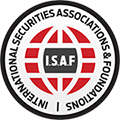Article: Danske Faces Long Road Back as Fine From Probes Seen Hitting $1 Billion
It will be years before Danske Bank A/S is fully rehabilitated from the shock of one of Europe’s most spectacular money-laundering scandals, according to its chairman, Karsten Dybvad.
Since admitting in late 2018 that a large part of the 200 billion euros ($238 billion) in non-resident cash that flowed through an Estonian unit was tainted, Danske has been cleansing its organization of any processes or personnel associated with the scandal. It’s also tried to build an iron-clad compliance unit, as it tries to reform itself and win back the trust of clients and investors.
“All the different projects that we are undertaking right now, also relating to our financial crime plan and all this, will take, not many years, but it will take years actually to complete,” Dybvad, who was brought in after the dirty money scandal erupted, said in an interview.
Danske is still being investigated by prosecutors in the U.S. and Europe for alleged money laundering. The U.S. Department of Justice and Securities and Exchange Commission probes alone may lead to penalties of up to $1 billion, according to Elliott Stein, senior litigations analyst at Bloomberg Intelligence in New York.
“Other countries are also investigating and may levy penalties,” Stein said in a note on March 16.
Not Enough
ATP, Denmark’s biggest pension fund and a Danske shareholder, says the bank hasn’t yet made all the cultural changes needed to move on. It points to a string of more recent, albeit smaller, scandals that once again thrust Danske into the spotlight. The list includes debt collection errors that hit thousands of the bank’s most financially vulnerable customers, drawing condemnation from Denmark’s government.
Danske made mistakes, Dybvad said. Management could have “communicated earlier and better” the bank’s acknowledgment of the situation and efforts to fix it, he said.
The chairman, who spoke after Danske’s annual general meeting, declined to provide details on whether the bank’s current management or board are being held accountable for past mistakes.
“We are where we are, and we have to move forward and that’s what we are doing,” he said.
